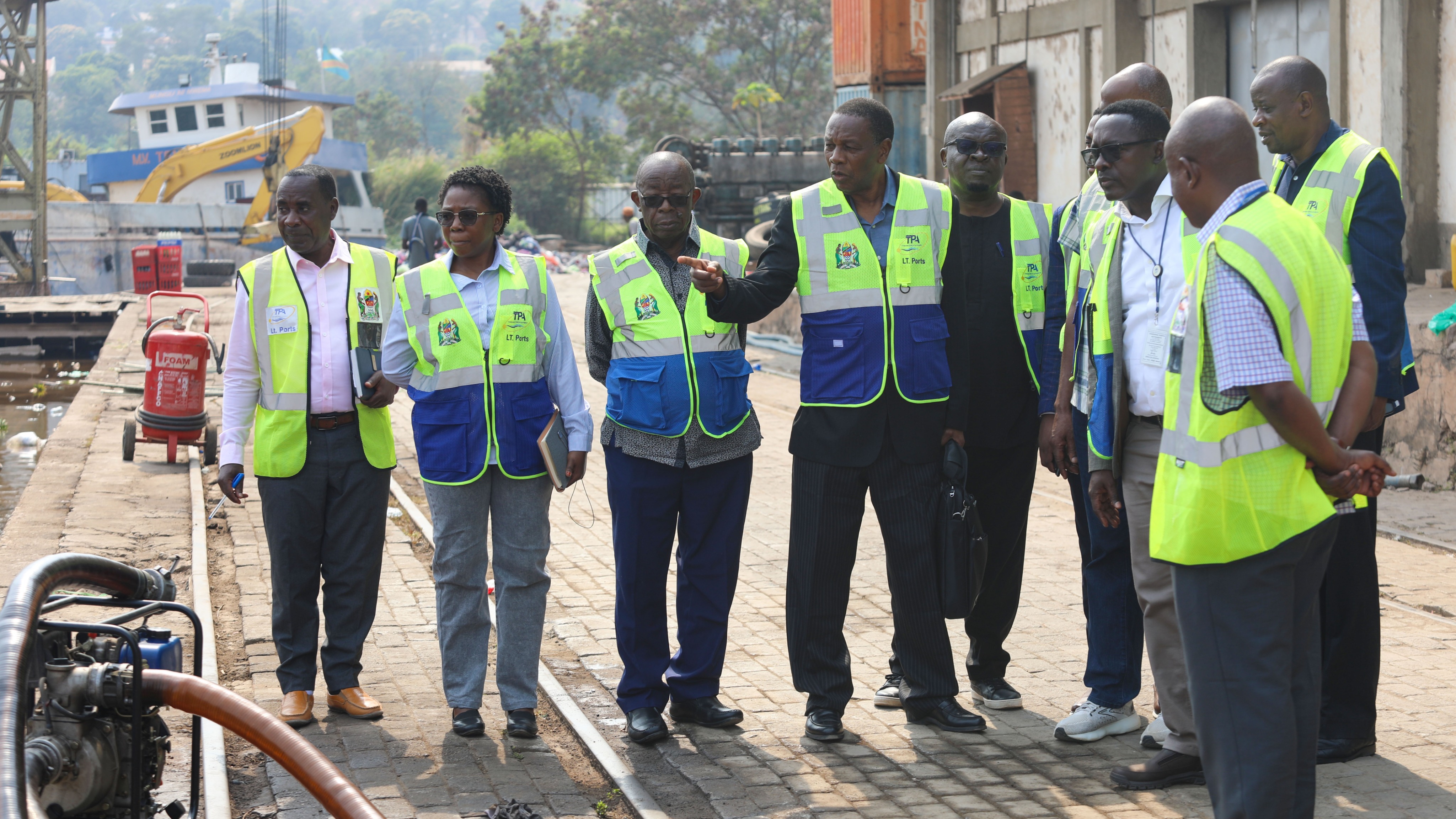PBPA urges oil institutions to work together to ensure safety and protect environment

The Board of Directors of the Petroleum Bulk Procurement Agency (PBPA) has called on all institutions responsible for oil management to work closely together to ensure that loading and offloading procedures strictly observe public safety and environmental protection.
The Board members made the remarks during a tour of oil cargo handling operations at Lake Tanganyika ports in Kigoma Region. They warned that loading oil without proper systems poses a high risk of environmental damage and endangers the lives of citizens.
PBPA Board Chairman, Dr. Lutengeno Mwakahesya, stressed the importance of ensuring that all infrastructure used in oil transportation complies with safety standards and environmental safeguards.
“Discharging oil directly from trucks into vessels without using a terminal is dangerous. We advise TPA to consider building new storage tanks or upgrading existing ones as part of the ongoing modernization of Kigoma Port,” he said.
He further recommended that the Tanzania Ports Authority (TPA) establish equal pricing for all oil loading and transportation activities through Kigoma, in order to encourage use of the terminal, reduce costs for operators, and enhance safety.
Presenting TPA’s report, Manager for Lake Tanganyika Ports, Edward Mabula, explained that the port currently relies on the dipping system, though preparations are underway to introduce the more efficient flow meter system.
Mabula said oil trade at Kigoma Port has been expanding steadily. “For example, oil reception increased from 32,826 metric tons in 2023 to 52,367 metric tons in 2024. This shows a growing demand for the service,” he noted.
He added that the oil is handled through the cargo terminal and shipped by the vessel Sangara to neighboring countries such as Burundi and the Democratic Republic of Congo. TPA, he said, is preparing to meet this rising demand.
Mabula also explained that during oil loading operations, fire and rescue institutions are always present at the port to ensure safety of workers, residents, and the environment.
For his part, Tanzania Revenue Authority (TRA) Kigoma Port Manager, Mohamed Mnonda, said TRA works closely with TPA, EWURA, and other stakeholders to ensure that all consignments destined for neighboring countries are properly recorded and monitored.
“TRA ensures that all cargo is weighed and documented correctly to prevent loss of government revenue and to maintain accuracy of trade statistics,” he said.
Meanwhile, the Director of GBP Tanzania Mr. Rashid Seif appealed to the Government to reopen oil export operations through Lake Tanganyika ports. He explained that when the system was suspended, many companies shut down their depots, but reopening exports would allow them to use their facilities again, boosting government revenue and creating local employment opportunities.
The Government is currently undertaking major upgrades at Kigoma Port and other Lake Tanganyika ports to improve their capacity to handle large oil consignments and other goods. The improvements are expected to strengthen Tanzania’s competitiveness in the Great Lakes region and expand trade links with countries such as Burundi, Congo, and Zambia.


